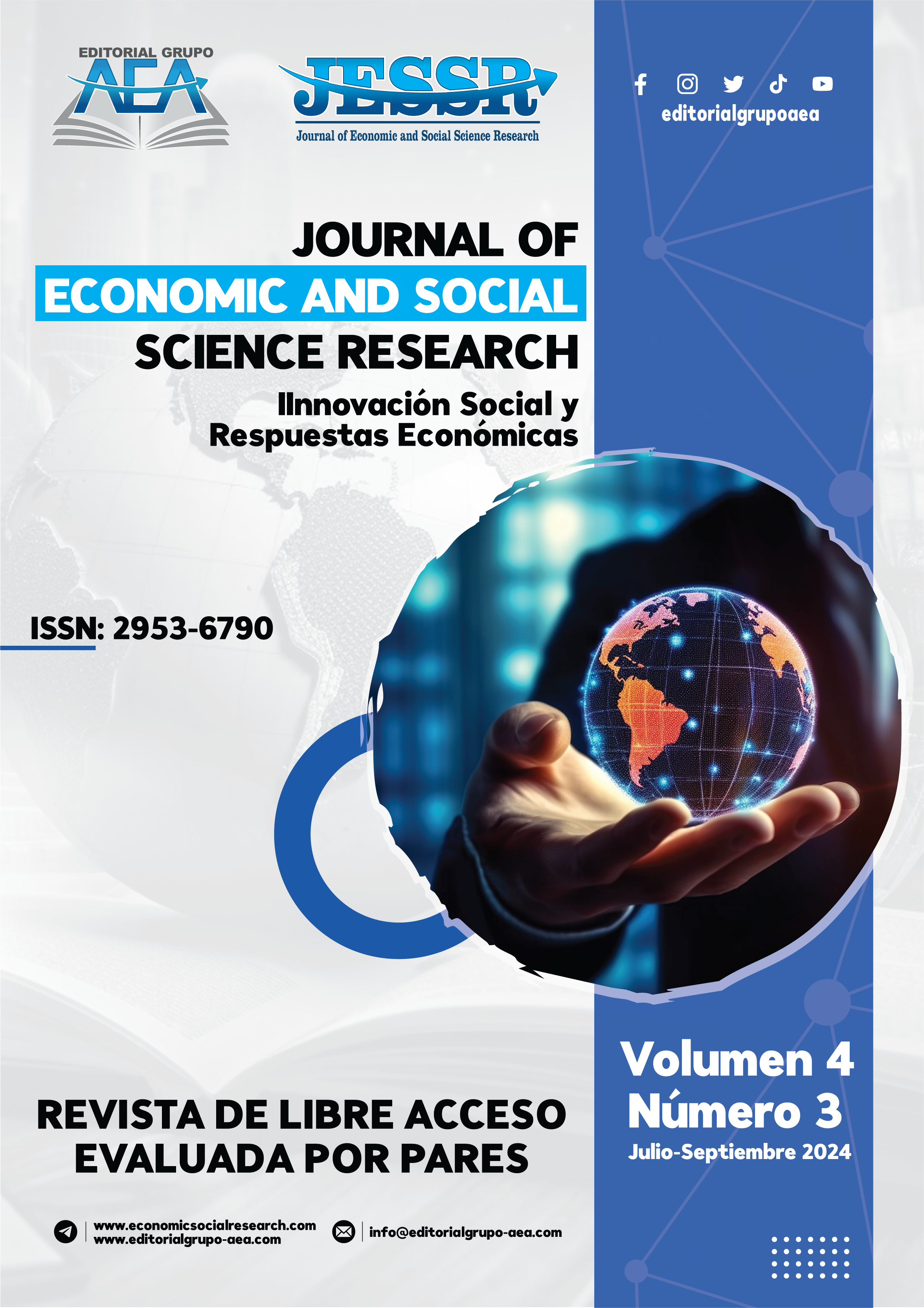Impacto de la Inteligencia Artificial en la Precisión y Eficiencia de los Sistemas Contables Modernos
Contenido principal del artículo
Resumen
Este estudio examina el impacto de la inteligencia artificial (IA) en la precisión y eficiencia de los sistemas contables modernos mediante una revisión bibliográfica cualitativa. Se seleccionaron y analizaron fuentes que discuten la implementación y los efectos de la IA en la contabilidad. Los hallazgos revelan que la IA mejora significativamente la precisión y la eficiencia operativa al automatizar tareas y optimizar los tiempos de procesamiento. Sin embargo, enfrenta desafíos como la interpretación de datos complejos y cuestiones de seguridad de la información. La discusión subraya la necesidad de capacitación continua y mejoras en las políticas de seguridad para manejar estos desafíos. En conclusión, aunque la IA transforma la contabilidad positivamente, su éxito dependerá de la adaptación proactiva a las nuevas tecnologías y de la colaboración entre los profesionales del campo. Este análisis proporciona una base para futuras investigaciones y subraya la importancia de estrategias proactivas para maximizar los beneficios de la IA en la contabilidad.
##plugins.themes.bootstrap3.displayStats.downloads##
Detalles del artículo
Sección

Esta obra está bajo una licencia internacional Creative Commons Atribución-NoComercial 4.0.
Cómo citar
Referencias
Autor, D. H. (2015). Why Are There Still so Many Jobs? the History and Future of Workplace Automation. Journal of Economic Perspectives, 29(3), 3–30. https://doi.org/10.1257/jep.29.3.3
Bessen, J. (2015). Learning by doing: the real connection between innovation, wages, and wealth. Yale University Press.
Casanova-Villalba, C. I., Proaño-González, E. A., Macias-Loor, J. M., & Ruiz-López, S. E. (2023). La contabilidad de costos y su incidencia en la rentabilidad de las PYMES. Journal of Economic and Social Science Research, 3(1), 17–30. https://doi.org/10.55813/gaea/jessr/v3/n1/59
Davenport, T. H. (2018). Artificial Intelligence for the Real World. Harvard Business Review. https://hbr.org/webinar/2018/02/artificial-intelligence-for-the-real-world
Duan, Y., Edwards, J. S., & Dwivedi, Y. K. (2019). Artificial Intelligence for Decision Making in the Era of Big Data – evolution, Challenges and Research Agenda. International Journal of Information Management, 48(1), 63–71. https://doi.org/10.1016/j.ijinfomgt.2019.01.021
Fanelli, S., Pratici, L., Salvatore, F. P., Donelli, C. C., & Zangrandi, A. (2022). Big Data Analysis for decision-making processes: Challenges and Opportunities for the Management of health-care Organizations. Management Research Review, 46(3), 369–389. https://doi.org/10.1108/mrr-09-2021-0648
Hovsepian, M. (2023). Council Post: The Benefits And Risks Of AI In Financial Services. Forbes. https://www.forbes.com/sites/forbesfinancecouncil/2023/12/26/the-benefits-and-risks-of-ai-in-financial-services/?sh=77809d11965b
Kommunuri, J. (2022). Artificial intelligence and the changing landscape of accounting: a viewpoint. Pacific Accounting Review, 34(4). https://doi.org/10.1108/par-06-2021-0107
Lawton, G. (2024). AI and GDPR: How is AI being regulated? | TechTarget. Data Backup. https://www.techtarget.com/searchdatabackup/feature/AI-and-GDPR-How-is-AI-being-regulated#:~:text=The%20GDPR%20protects%20individuals%20from
Mat, K., Ain, N., Hani, N., Nur, S., & Mazurina Mohd Ali. (2024). The Impact of Artificial Intelligence on Accounting Profession: A Concept Paper. Business Management and Strategy, 15(1), 34–34. https://doi.org/10.5296/bms.v15i1.21620
Nieschwietz, R., Pany, K., & Zhang, J. (2002). Auditing with technology: using generalized audit software in the classroom. Journal of Accounting Education, 20(4), 307–329. https://doi.org/10.1016/s0748-5751(02)00011-8
Peng, Y., Ahmad, S. F., Ahmad, A. Y. A. B., Al Shaikh, M. S., Daoud, M. K., & Alhamdi, F. M. H. (2023). Riding the Waves of Artificial Intelligence in Advancing Accounting and Its Implications for Sustainable Development Goals. Sustainability, 15(19), 14165. https://doi.org/10.3390/su151914165
Susskind, R., & Susskind, D. (2015). The Future of the Professions. Oxford University Press. https://doi.org/10.1093/oso/9780198713395.001.0001
Villalba, C. I. C., Sánchez, M. J. H., Soto-Soto, L., Gamarra-Moreno, J., Cervantes, L. T., & Núñez, D. T. (2021). Accounting Management for Decision Making. Journal of Positive Psychology and Wellbeing, 5(4), 74-86.





